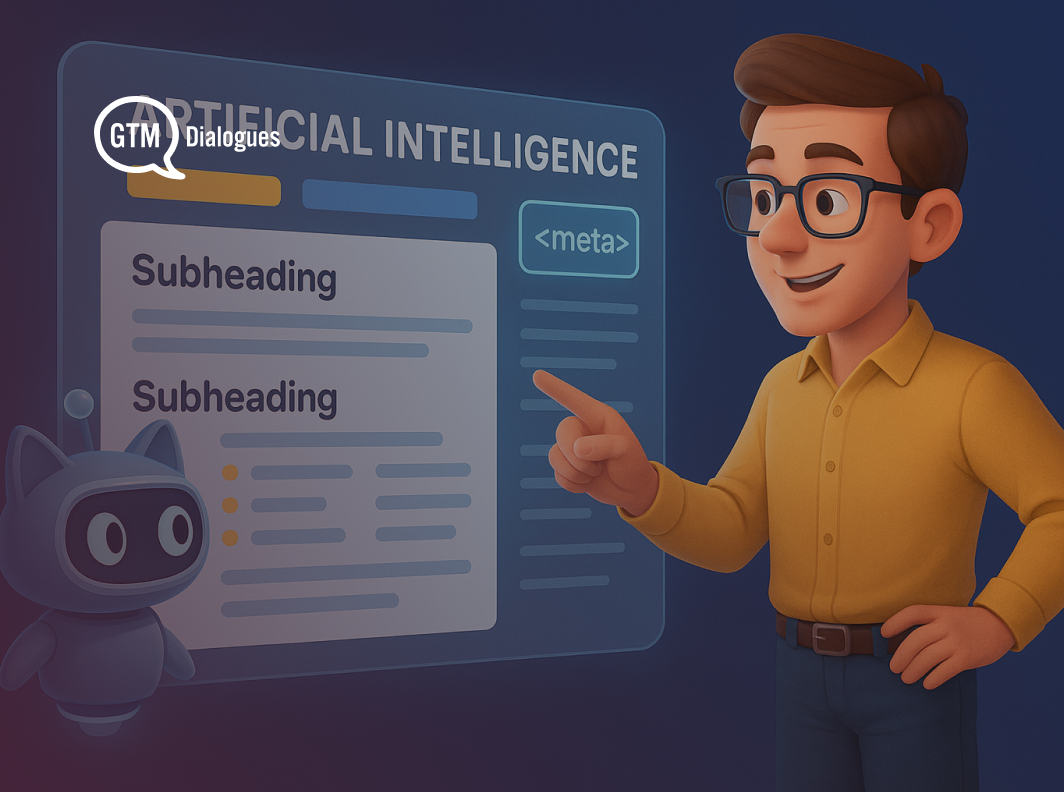Imagine you’re planning a vacation, and a friend recommends a hotel they’ve stayed at. That recommendation carries weight because you trust their experience and judgment.
Now, picture the internet working the same way.
Backlinks, often called inbound links, serve as these trusted recommendations—but between websites. They’re endorsements that signal value and credibility to search engines.
Back in 2016, Andrey Lipattsev, a Google search quality senior strategist, said that backlinks were considered one of the top three Google search ranking factors.
But as of 2023, Gary Illyes, an analyst on the Google Search team, said its significance is not as it was before.
So why should we still care?
Let’s be clear. While advancements in machine learning and natural language processing have shifted some dynamics, backlinks remain critical.
High-quality backlinks can boost your site’s visibility, increase traffic, and establish your authority in your industry.
Even if you’re new to SEO, understanding backlinks doesn’t have to be intimidating. Think of them as digital word-of-mouth that can help your website grow.
Let’s break it down step by step, starting with why backlinks are so crucial in the online world.
Why are Backlinks Important?
Backlinks are important because they act as a vote of confidence for your website. Search engines, like Google, use these links to determine how trustworthy and relevant your site is.
The more high-quality backlinks you have, the better your chances of climbing up search engine results pages (SERPs). But why exactly are they so important?
Here’s a breakdown of why backlinks are crucial:
1. Improved Rankings
Websites with a strong backlink profile tend to perform better in search results. For instance, Backlinko analyzed 11.8 million Google search results and found that pages with more backlinks significantly outperformed those with fewer.
This shows how backlinks are still a key factor in boosting visibility.
2. Referral Traffic
Backlinks are not just about rankings—they also drive real people to your site. Let’s say a popular blog links to your product page. Readers of that blog might click the link to learn more about your offering.
This kind of traffic is valuable because it’s highly targeted and comes from a trusted source.
3. Faster Indexing
Search engines discover new pages by following links. If your site has backlinks from frequently crawled websites, search engines are more likely to find and index your pages quickly.
This is especially important for new websites looking to establish their online presence.
Types of Backlinks
Not all backlinks are created equal. Some carry more weight than others. Understanding the different types can help you focus your efforts on the ones that truly matter.
Here are the primary types of backlinks you need to know:
1. DoFollow Links
These are the most valuable backlinks. They pass link equity (also known as "link juice") to your site, directly impacting your rankings.
For example, if a reputable news site links to your blog post, that’s a high-quality dofollow link.
2. NoFollow Links
These links include a "nofollow" attribute, instructing search engines not to pass link equity. While they don’t boost rankings directly, they can still drive referral traffic and improve your online visibility.
Think of links from platforms like Quora or blog comments.
3. Editorial Links
These are earned naturally when other websites find your content valuable enough to link to. For instance, if you publish a groundbreaking study, a journalist might link to your findings in their article.
These are considered the most valuable type of backlink because they’re organic.
4. Guest Post Links
When you contribute a blog post to another site, you often get to include a link back to your site. This is a strategic way to build backlinks while reaching new audiences.
5. Directory Links
These come from online directories, such as Yelp or niche-specific directories. While their value has diminished, they can still be useful when relevant and high-quality.
What Makes a Quality Backlink?
If backlinks are votes of confidence, not all votes are equal. Quality matters more than quantity when it comes to backlinks.
A backlink from a reputable, relevant site is much more impactful than a low-quality or unrelated site. A single high-quality link is often worth more than dozens of low-quality ones.
Here’s what makes a backlink valuable:
- Relevance: Links from websites within your niche or industry carry more weight. For example, a backlink from a health blog to your fitness site is more valuable than a fashion directory.
- Authority: High-authority websites like major news outlets or government sites pass more link juice. Tools like Moz or Ahrefs can help you gauge a site’s authority.
- Anchor Text: The clickable text of a backlink matters. Descriptive anchor text that includes relevant keywords can boost your rankings. For example, "best running shoes" as an anchor text linking to your product page is more effective than a generic "click here."
- Placement: A backlink placed within the main content of a page holds more value than one buried in the footer or sidebar. Search engines prioritize contextually relevant links.
- Traffic Potential: Links from high-traffic sites can drive more visitors to your site, adding both direct and indirect value.
How to Earn Backlinks?
Building a robust backlink profile requires effort, but the rewards are worth it. Here are some proven strategies:
- Create High-Quality Content: Great content is the foundation of any successful backlink strategy. Publish articles, guides, or resources that provide real value. For example, an in-depth guide to marathon training can attract links from fitness bloggers and running communities.
- Outreach: Proactively reach out to bloggers, journalists, and website owners in your niche. Share your content and explain why it’s valuable to their audience. Personalization is key—a generic email won’t get you far.
- Guest Blogging: Write for other websites in your industry. Not only does this help you build backlinks, but it also positions you as an expert in your field.
- Broken Link Building: Identify broken links on other websites and suggest your content as a replacement. Tools like Ahrefs and SEMrush can help you find these opportunities.
- Leverage Social Media: Share your content widely on platforms like LinkedIn and Facebook. The more visibility your content gets, the higher the chances of earning backlinks.
- Participate in Forums and Communities: Engage in forums like Reddit or Quora. Answer questions, provide value, and link to your content where relevant. Just avoid being overly promotional.
Some Backlinking Misinformation Debunked
There’s a lot of misinformation about backlinks. Let’s clear up some common myths:
1. Quantity Over Quality
Some think that more backlinks always mean better rankings. However, low-quality or spammy links can harm your site’s reputation.
2. Paid Links Are the Shortcut to Success
Buying links violates Google’s guidelines and can lead to penalties. Focus on earning links naturally through quality content and relationships.
3. NoFollow Links Are Worthless
While they don’t pass link juice, nofollow links can drive traffic and boost brand awareness. For example, a nofollow link from a popular blog can send hundreds of visitors your way.
Final Thoughts: How to Start?
Backlinks are essential to SEO, acting as endorsements that build your site’s credibility and authority. They help search engines understand the value and relevance of your site. However, building backlinks is not about shortcuts.
And success doesn’t happen overnight.
Start by creating valuable content and building genuine relationships within your industry. Focus on earning high-quality links naturally and avoid shortcuts that could lead to penalties. Over time, these efforts will pay off, driving more traffic and improving your search rankings
Start small, but stay consistent.
Remember, backlinks are not just about SEO—they’re about building connections and providing value to your audience. With the right approach, you can build a robust backlink profile that drives traffic and boosts your rankings.
Frequently Asked Questions
1. What are backlinks, and why are they important for SEO?
Backlinks are links from one website to another, acting as endorsements for your site. They are important because they boost your website's credibility, improve search engine rankings, and drive referral traffic.
2. What makes a backlink high-quality?
A high-quality backlink comes from a reputable, authoritative, and relevant site. Factors like relevance to your niche, the website's domain authority, anchor text, and contextual placement contribute to its value.
3. How can beginners start building backlinks?
Beginners can start by creating high-quality content, reaching out to industry influencers, guest blogging, leveraging broken link-building opportunities, and sharing their content on social media and forums.
4. What is the difference between DoFollow and NoFollow links?
DoFollow links pass link equity ("link juice") to your site, directly impacting SEO rankings, while NoFollow links don’t pass link equity but can still drive traffic and improve brand visibility.
5. Can backlinks harm my website’s rankings?
Yes, low-quality or spammy backlinks from irrelevant or untrustworthy sources can harm your rankings and even lead to penalties from search engines like Google. Focus on earning high-quality, relevant backlinks.































